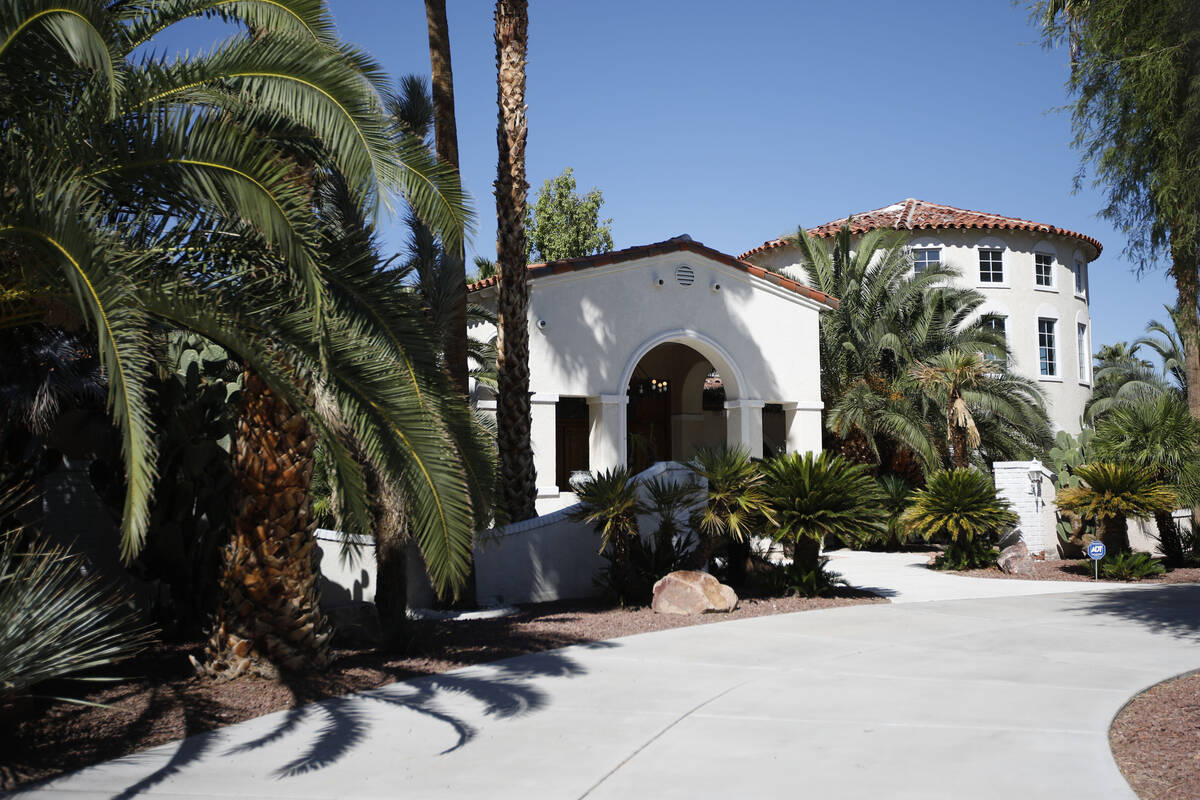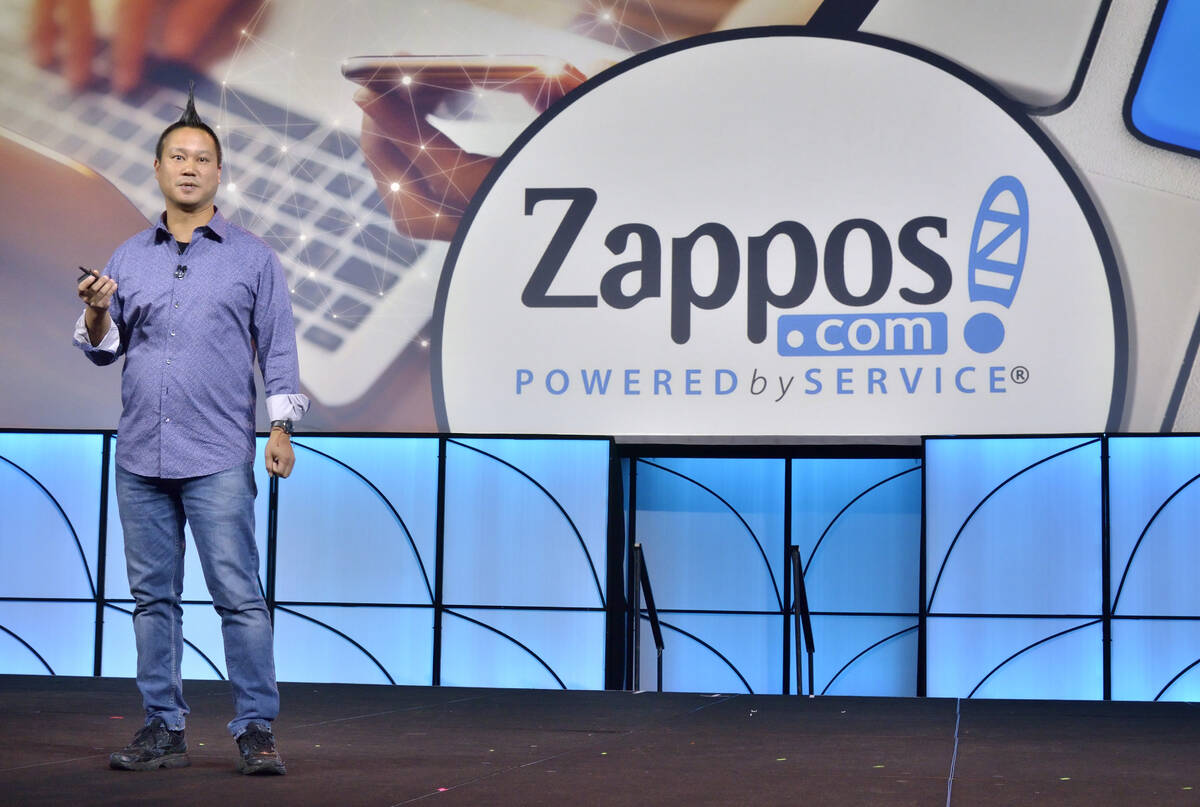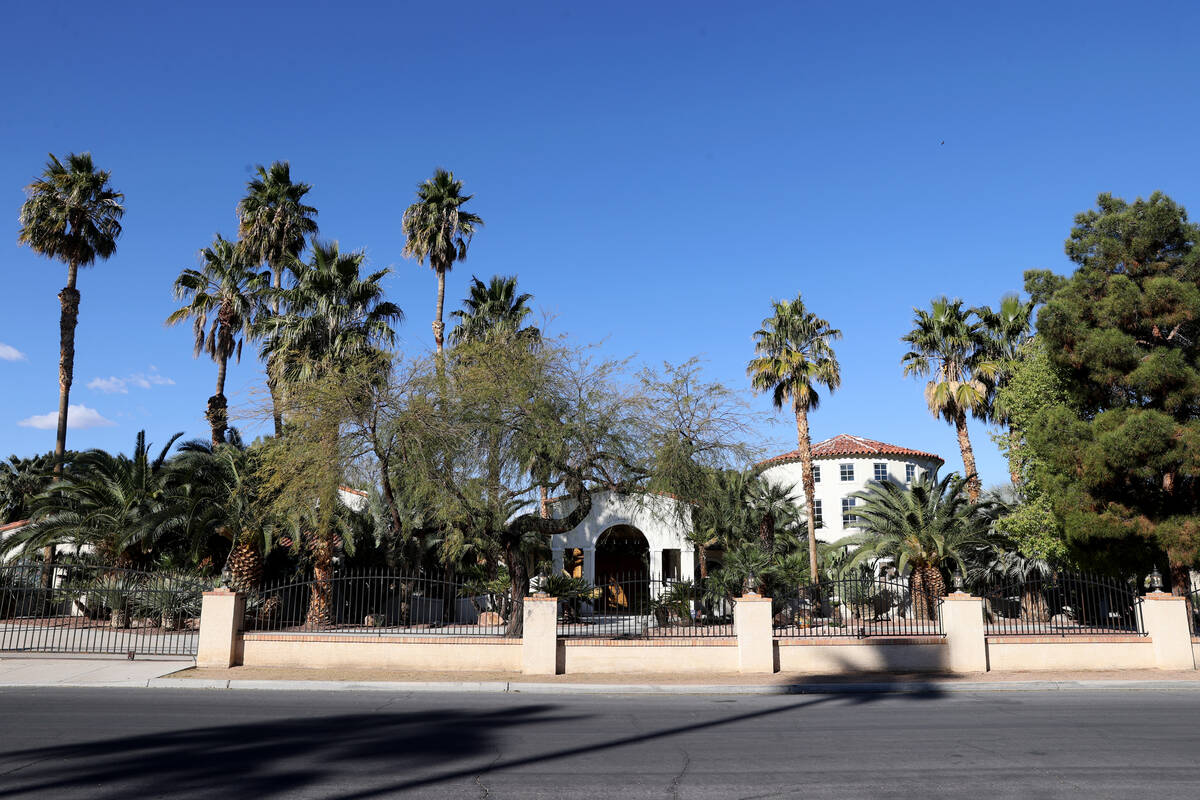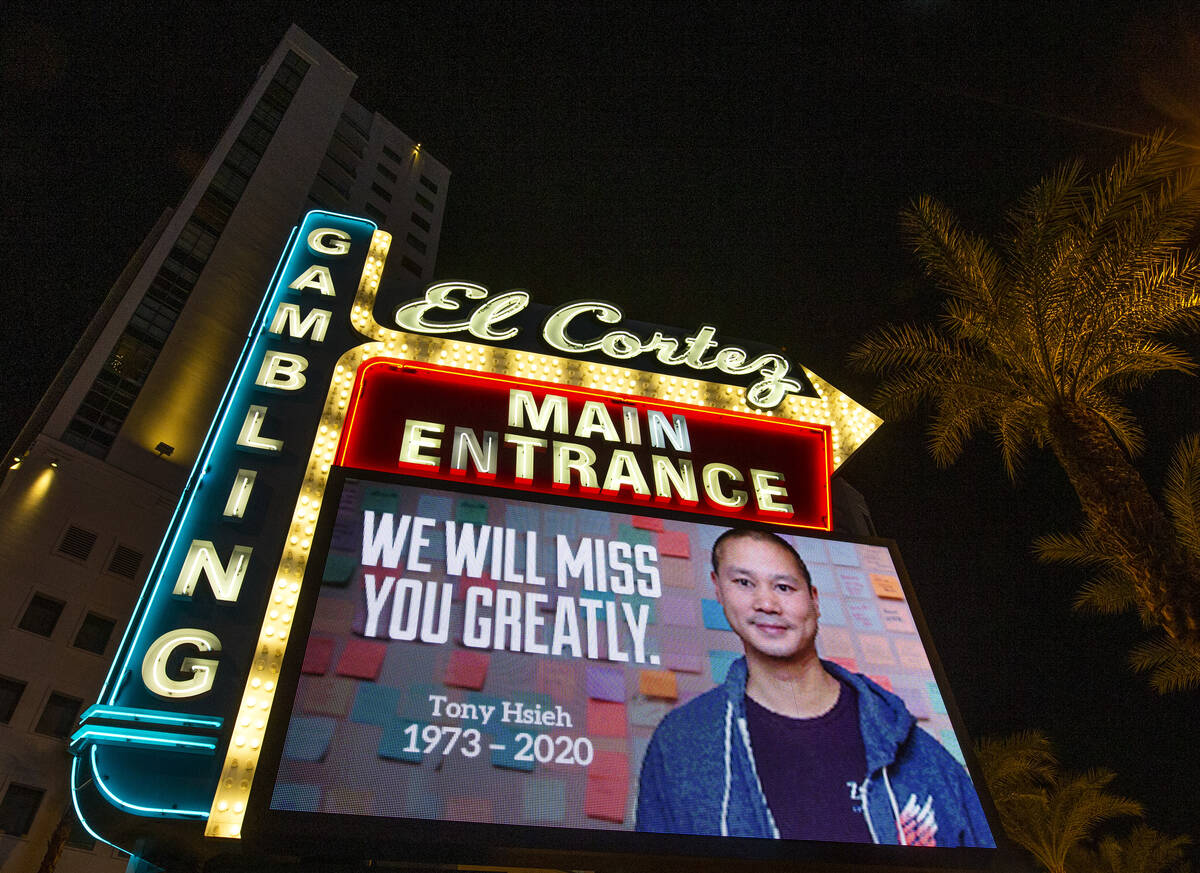Luxury estate owned by Tony Hsieh finds a buyer
A Las Vegas house that was owned by the late tech mogul Tony Hsieh has found a buyer.
Attorneys for Hsieh’s family filed papers Monday in his Clark County District Court probate case showing the sprawling home at 1250 Shadow Lane is being sold for $2.1 million to Pui Chu Yee.
The luxury estate, in the Scotch 80s community off Charleston Boulevard near Interstate 15, spans 14,336 square feet. It sits on 1¾ acres and features a main home, a “carriage house,” an indoor pool, an elevator and lush landscaping, according to a listing on Zillow.
The offering included washers, dryers and refrigerators but did not include the contents “of the locked room (miniature doll house and woven rug)” (sic), according to the listing agreement filed with the court.
Hsieh’s family on Monday sought a hearing on the sale by Dec. 31. An attorney indicated in court papers that if it was held after the year ends, it could “potentially prevent an important sale from occurring” and “create negative tax consequences that would be detrimental to the sale and Estate.”
A filing Tuesday by court administration shows a hearing was scheduled for Jan. 13.
Dara Goldsmith and Vivian Thoreen, attorneys for Hsieh’s family, did not immediately respond to a request for comment Tuesday on the house sale or whether any other properties that were owned by Hsieh are listed with brokers or under contract to sell.
Hsieh, who died in November 2020 at age 46 from injuries suffered in a Connecticut house fire and did not leave a will, was the former longtime CEO of online shoe seller Zappos and the face of downtown Las Vegas’ revival. In 2012, he launched a side venture originally called Downtown Project to invest $350 million into the Fremont Street area, and in 2013, he moved Zappos from a Henderson office park to the former Las Vegas City Hall.
He became one of downtown’s biggest property owners through his venture’s real estate buying binge, assembling a portfolio of apartment complexes, retail and office buildings, shuttered motels and vacant lots.
His father, Richard Hsieh, and brother Andrew Hsieh are overseeing his estate. They filed more than 100 sale notices in District Court in a two-day span in February for dozens of properties in Las Vegas.
The plots included the house at 1250 Shadow Lane. Like the other parcels, its court notice declared that the home “will sell at private sale to the highest and best bidder,” that a sale is subject to court confirmation, and that the terms consisted of one word: “Cash.”
As of September, it appeared the house was Hsieh’s only property to be formally listed for sale.
His family also filed nearly 20 sale notices in one day in March for his real estate holdings in the wealthy ski town of Park City, Utah. Hsieh, who was unmarried, bought several houses there last year and, sources have said, threw frequent parties at a mansion protected by security guards and was known for staying in his room for days at a time.
Goldsmith has previously said sale notices were filed “to allow for a possible future sale” and that Hsieh’s estate may keep some or all of the properties.
Overall, it seems the future of Hsieh’s fortune isn’t close to being determined. A multipronged legal battle over his estate, spanning lawsuits and creditors’ claims, has featured big sums of money, detailed accounts of Hsieh’s drug use and bizarre behavior in his final year alive, and allegations that people close to Hsieh took advantage of him financially as his health spiraled downward.
According to court filings by his own family, Hsieh was “perpetually under the influence of Ketamine” for a period, thought he could transform into animals or objects, believed he had “discovered the mathematical algorithm for world peace,” and was taking an “excessive” amount of nitrous oxide.
Contact Eli Segall at esegall@reviewjournal.com or 702-383-0342. Follow @eli_segall on Twitter.


























